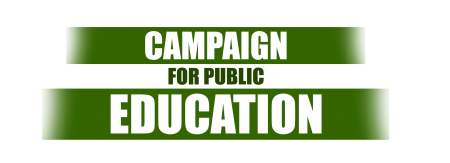Inner city schools working
Model Schools ramp up
Inner city program results 'very encouraging' for kids, teachers and community
BRYN WEESE, Toronto SUN Wed, April 30, 2008
The results are in, and by all accounts, Model Schools for Inner Cities is working.
The program, which the Toronto District School Board (TDSB) launched at three inner city elementary schools a year ago, was designed to better support students in problem neighbourhoods by involving parents, counsellors and the community. Four more inner city schools were added last fall.
The program offers a different curriculum and increased field trips to better engage students, as well as providing social supports such as counsellors for students and their families to address social, physical and emotional needs. It also provides a meal program, and access to teachers after school for help with homework.
NEIGHBOURHOOD 'HEART'
The seven Model Schools have also opened their doors, becoming "the heart" of their neighbourhoods by offering meeting places for community groups and increased use by parents.
"Our school has become a welcoming place. The community now takes ownership for the school and that's where I think the success continues," said Ed Malabre, principal of Nelson Mandela Park in Regent Park where, in the last year alone, suspensions have decreased by 5%. "The results are very encouraging."
Also at Nelson Mandela, there has been a 12% increase in attendance among Grade 2 and 3 students, and a 7% reduction in lateness among Grade 3 students.
At the other two original pilot schools for which results were released yesterday — Firgrove in Jane-Finch, and Willow Park Junior near Lawrence Ave. E. and Kingston Rd. — the story's the same.
At Firgrove, there has been a 13% increase in the provincial standardized testing scores, and at Willow Park, teacher satisfaction is up 22%.
According to Sheila Cary-Meagher, board trustee for Ward 16, the Model Schools program offers "tremendous" value. It only costs $1.50 a student a day.
'ENTHUSIASM, HOPE'
Overall, the program cost $8.5 million last year from the $130 million the board received from the province for inner city programming.
"It reaches more inner city kids than any other programs we have," Cary-Meagher said. "What's most fun about this is the rejuvenation of enthusiasm and hope and commitment. You have livelier teachers, and parents who feel more comfortable to come into the schools."
According to O'Shane Duncan, a Grade 7 student at Nelson Mandela, it's made his school safer and more fun. "I see my school as a great school and a safe school."
The program is a collaborative project between the TDSB, Toronto Public Health, the City of Toronto, York U. and the Ontario Institute for Studies in Education at U of T.

